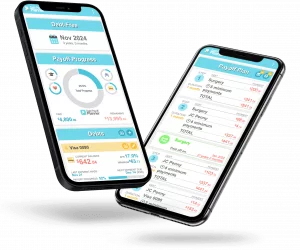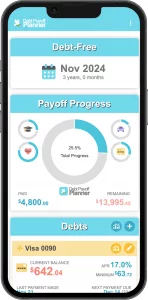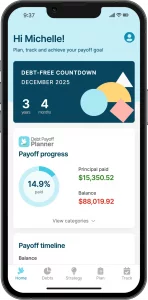Auto refinancing might not be a topic that you’ve considered yet. Many people get their initial car finance loan and continue making payments until they have paid off the car or trade it for a newer model, never considering if it’s time to refinance car loan. However, refinancing your car could be a smart money move under the right conditions. Using a car loan calculator can help you make the best decision about refinancing.
1. Your Credit Improves
Maybe you had excellent credit when you purchased your car. If you didn’t, the chances are good that if your credit improves at all in the first year or two you own your car, you could get a better interest rate on your loan by refinancing. Any improvement in the interest rate on your loan can make a substantial difference in the total amount you pay over the life of your loan. Let’s take a look at a car loan calculator to see an example.
Using the auto loan calculator at www.bankrate.com, let’s assume a purchase price of $10,000 at a rate of 7%, with a term of 60 months (5 years.) Your monthly payment would be $198.01. Over the life of your loan, you would pay $1,880.72 in interest. If you are able to refinance that loan at 4.0%, depending on when you refinanced, you would save substantial money in interest. Let’s say that a year into your loan, you refinanced your car loan. With a remaining balance of $ 8,119.24, financed for four years, you would have a monthly payment of $182.89 and pay total interest of $678.74 on your new loan. Looking at the amortization schedule, you can see that you pay the most interest at the beginning of your loan. With that information in mind, it’s best not to delay refinancing for too long.
Other than clearing up any mistakes on your credit report, the only real way to improve your credit is time: a longer history of on-time payments, average age of accounts, the removal of negative items as they age off of your credit report, and paying down existing debts. However, even a modest improvement in your score, as low as a 50-point improvement, can result in a better interest rate on auto loans. Monitoring your credit rating is an excellent idea. Be careful with services that offer to monitor your credit for you – it’s important to be sure that you get true FICO scores, not a number that is made up by the credit monitoring company. The website www.myfico.com offers excellent credit education and reliable information about improving your credit. You are also entitled to a free annual credit report under federal law. See www.annualcreditreport.com to obtain your credit reports.
2. You Didn’t Shop Around for Your Loan First
You worked hard on establishing good credit and walked into the car dealership ready to buy. The excitement of picking out a new car might have distracted you from getting the best possible rate. The salesman may have given you information on a car loan from the dealer and told you that you qualified. Great! Right? Not necessarily. Many auto dealers provide car loans as another way to profit from auto sales. The interest rate might not be bad, but it usually isn’t as good as you could get through your bank or credit union, or by shopping for loans online. If you think there is a chance you didn’t get the best possible deal, check a car finance calculator and determine your options to refinance your car loan. Also, if general interest rates are lower now than they were when you first purchased your car, it might be a good time to refinance. Even a percentage point or two can make a big difference.
3. Your Personal Circumstances Have Changed
Sometimes finances take an unexpected turn. A change in income, increased expenses with a new baby, unexpected medical expenses, and other life events can change your cash flow dramatically. While it’s generally best to pay off car loans as quickly as possible, a difficult financial situation might mean you need a lower monthly payment. One way to do this is to refinance for a longer term, lowering your monthly cost.
How to Refinance Your Auto Loan
Refinancing car loans is typically not very difficult. First, gather information regarding your current loan and your vehicle. Note the year, make and model of your car and the VIN number. Check to see if your auto loan has a prepayment penalty. This information is very important in determining whether refinancing your loan is the best option. If it does include a prepayment penalty, you’ll need to look carefully at your car finance calculator to determine if the savings in interest offsets the penalty or not.
Check your credit so that you know your bargaining position. The higher your credit score, the better rate you can get. Once you know your score, begin shopping around for the best interest rate. If you are or can become a member of a credit union, you may find an excellent rate. Many banks also offer good rates on an auto refinance. The finance industry is very competitive, and you can also get quotes online. Be sure to get at least three quotes. Read the terms carefully to avoid any hidden fees or penalties. Next, use an auto loan calculator to determine your new monthly payment based on the remaining balance, new interest rate, and term of the loan.
















